While covering the tension between the U.S. and North Korea, Chinese media emphasizes three principles in general: denuclearization and stabilization on the Korean Peninsula; solving the issue through peaceful means and dialogues; and assuring PRC’s own security and stability.
On July 4, North Korea conducted its first test of an intercontinental ballistic missile (ICBM). Most western media covered it thoroughly, and condemned North Korea as a “rogue nation”. The BBC offered a detailed analysis on how the missile might threaten the United States’ security, and discussed possible measures for other countries to take in face of the situation.
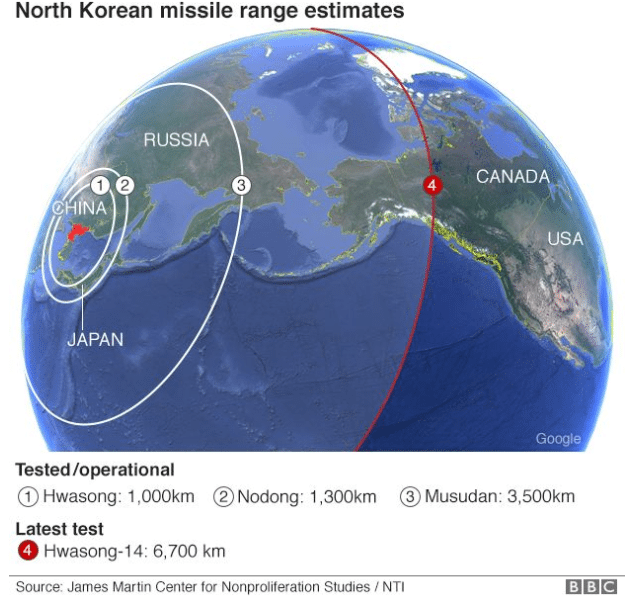
Chinese media urged the DPRK to stop such actions that violate United Nations Security Council resolutions. Negotiation and dialogue were also stressed in their coverage.
China Daily reiterated China’s “suspension for suspension” proposal package — suspension of nuclear and ballistic missile testing on the part of the DPRK, and suspension of military exercises on the part of the US and the Republic of Korea.
On July 28, North Korea tested its second ICBM, claiming that the “whole US mainland” was in range. Western media devoted a lot of reporting not only to the escalating threat from North Korea, but also to President Trump’s options in reaction to it.
Chinese media still focused on solving the problem with peaceful talks and negotiation. But it also expressed great concerns over the THAAD (Terminal High Altitude Area Defense) system deployment in South Korea by the United States.
Phoenix New Media quoted a statement from the Ministry of Foreign Affairs of the People’s Republic of China that “deploying THAAD will neither solve the real problems regarding South Korea’s security, nor will it solve Korean Peninsula issues.” It also reported that “THAAD deployment will severely damage strategic balance in the region as well as China’s national security.”
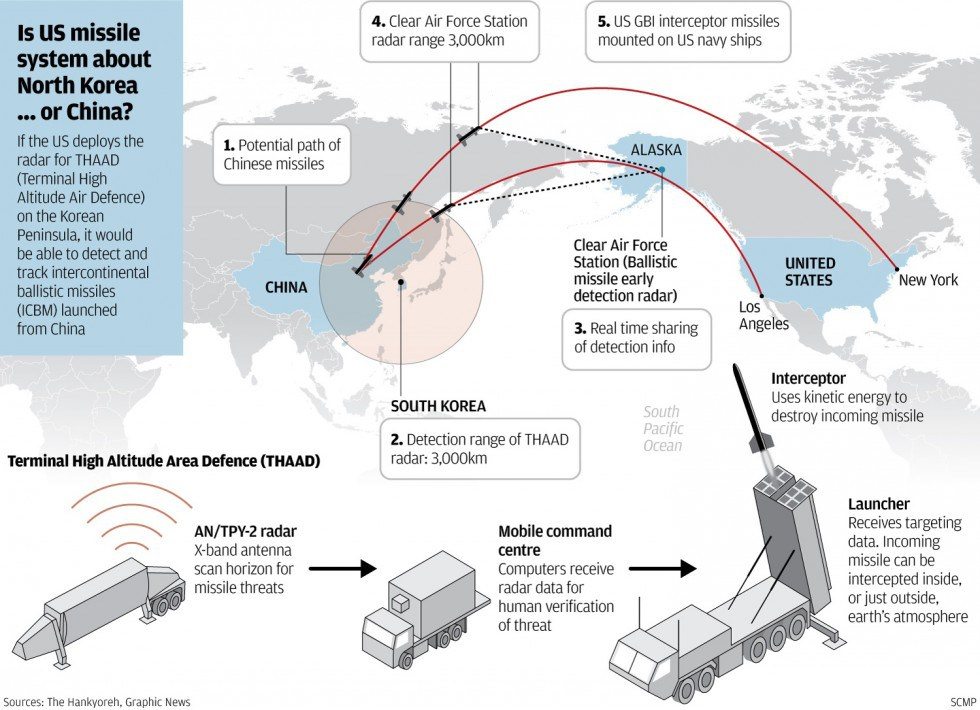
Since early August, Chinese media has been reporting on the “war of words” by both sides and emphasized that both sides should be more cautious of their language to avoid rising tension. It relied heavily on military analysis about the importance of Guam for the US military and the unlikelihood of an actual war.
The United States has been calling for more serious economic and trade sanctions against North Korea from China. Trump tweeted his disappointment in China.
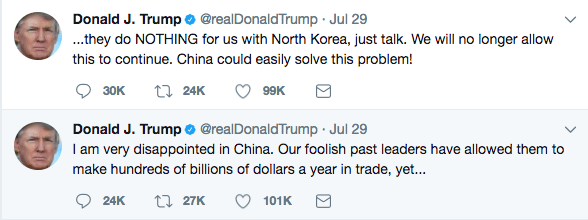
China Daily responded by saying “Beijing has every reason to feel unfairly burdened with a task that is obviously beyond it, especially as it has been working diligently to broker a peaceful resolution to the crisis … Unfortunately, Trump’s threat to link the issue to trade and mount pressure on China show these two stakeholders are moving further apart rather than coming together.”
XinhuaNet also refuted, “China wants balanced trade with the United States, and it also hopes for lasting peace on the Korean Peninsula. However, to realize these goals, Beijing needs a more cooperative partner in the White House, not one who piles blame on China for the United States’ failures.”
On August 29 (just before 6am local time), North Korea fired a Hwasong-12 intermediate-range ballistic missile, which flew over Japan and landed in the Pacific Ocean. The Washington Post provided a detailed analysis of Kim Jong Un’s political intentions behind this act as well as all sides’ standpoint on this issue. The article also included analysts’ view that this act enabled North Korea to send a strong political signal and to glean valuable technical data on its rapidly advancing missile program, without overtly crossing a “red line” and spurring the United States into action.
CNNMoney talked about more trade sanctions to restrain North Korea from China in response to this.
Chinese media, on the other hand, still focused on the importance of peaceful dialogue between North Korea and the US, stressing that any provocative acts or even words would only escalate tension.
An editorial piece in the Global Times, a publication having a strong pro-government slant, also pointed out that further sanctions would serve to pacify the US, South Korea, and Japan; however, they would help little in restraining North Korea at this point. The Global Times advocated that continual missile launches have brought Pyongyang enough attention and a sense of equality on the international stage, and are becoming the main sources for North Korea to gain “international dignity”. According to the Times, the best way to end this vicious circle between missile launches and sanctions plus military threat is to continue dialogues between the two sides unconditionally, in order to better understand the safety concerns from Pyongyang. This includes helping North Korea find a safer way to replace nuclear weapon development plans and in the end gain international acceptance.
LIMA CHARLIE NEWS, with Ang Li
Lima Charlie provides global news, insight & analysis by military veterans and service members Worldwide.
For up-to-date news, please follow us on twitter at @LimaCharlieNews
In case you missed it:

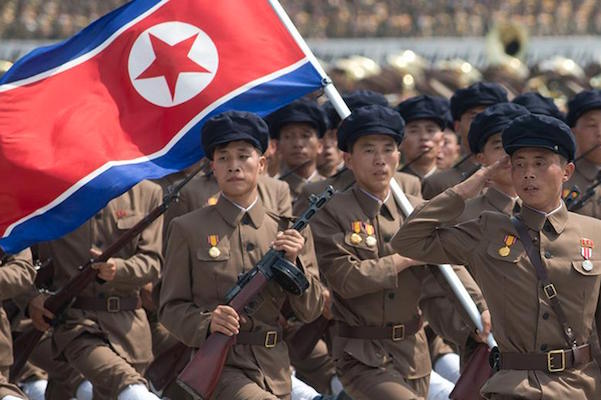
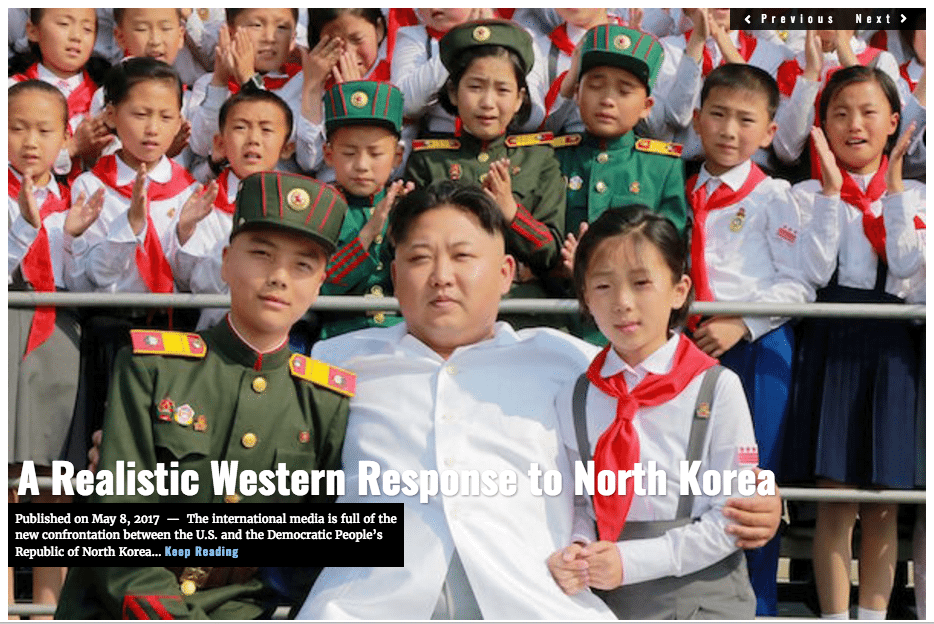
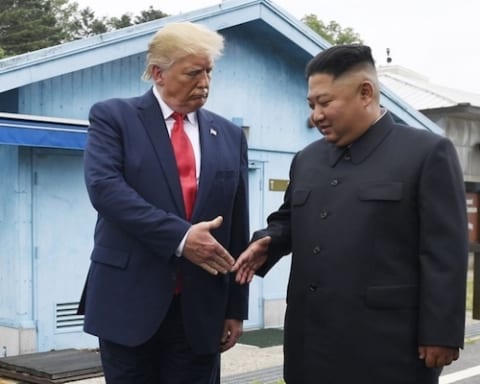
![Image Kim Jong-Un isn’t as crazy as you think [Lima Charlie News][Image: Reuters]](https://limacharlienews.com/wp-content/uploads/2018/04/Kim-Jong-Un-isn’t-as-crazy-as-you-think-480x384.png)
![Image North Korea mistakes: how Trump can overcome the shortcomings of Clinton’s 1994 Agreement [Lima Charlie News]](https://limacharlienews.com/wp-content/uploads/2018/03/North-Korea-mistakes-how-Trump-can-overcome-the-shortcomings-of-Clinton’s-1994-Agreement-480x384.png)


![Blossoming Russo-Turkish alliance leaves U.S., NATO behind [Lima Charlie News]](https://limacharlienews.com/wp-content/uploads/2019/07/Russia-Turkey-alliance-leaves-U.S.-NATO-behind-480x384.png)

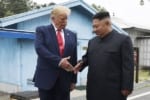
![Image Kim Jong-Un isn’t as crazy as you think [Lima Charlie News][Image: Reuters]](https://limacharlienews.com/wp-content/uploads/2018/04/Kim-Jong-Un-isn’t-as-crazy-as-you-think-150x100.png)